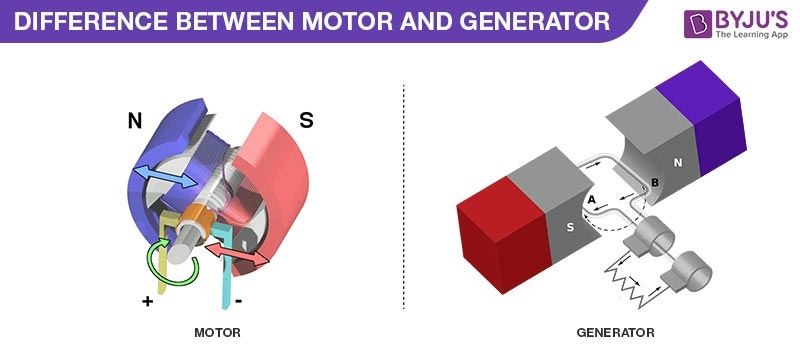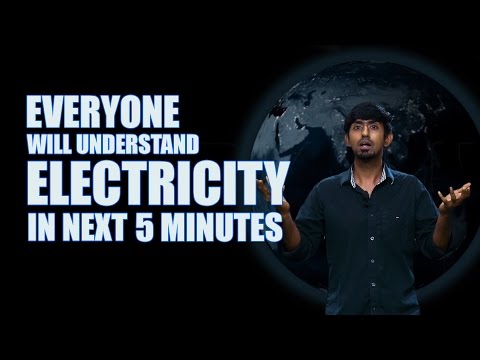
Difference between motor and generator is probably the most common question from the topic ‘Electricity’ in physics. In this article, the main differences between electric motors and generators are given here. The difference between motors and generators given here is in tabular form for better understanding and clarity.
Before moving to the differences between a motor and a generator, it is important to know what they are. Their functions, structure, and other related details. To learn more about an electric motor and generator, visit the links given below.
Difference Between Motor and Generator
|
Sl. No. |
Differentiating Property |
Motor |
Generator |
|
1 |
Definition |
An electric motor is a machine that converts electrical energy to mechanical energy. |
An electric generator is a machine that converts mechanical energy to electrical energy.` |
|
2 |
Rule |
Electric motor follows Fleming’s left-hand rule. |
Electric generator follows Fleming’s right-hand rule. |
|
3 |
Principle |
The working principle of a motor is based on the current-carrying conductor that experiences a force when it is kept in the magnetic field. |
The working principle of the generator is based on electromagnetic induction. |
|
4 |
Driving force for shaft |
The shaft of an electric motor is driven by a magnetic force which is developed between the armature and field. |
The shaft of an electric generator is connected to the rotor which is driven by a mechanical force. |
|
5 |
Current Usage |
In a motor, current is supplied to the armature winding. |
In a generator, current is produced in the armature winding. |
|
6 |
Example |
Ceiling fans, cars, etc. are all examples of motors. |
In power stations, generators are used to generate electricity. |
These were the main differences between a motor and a generator that can be asked in the exams. Students aspiring to learn engineering courses are required to get acquainted completely with the concepts of motors and generators. Check the articles given below to get additional information about generators and motors with their principles.
Related Articles:
Frequently Asked Questions – FAQs
Define Electric Motor.
Define Electric Generator.
Which rule is followed by Electric Motor?
Which rule is followed by the Electric Generator?
What are the examples of Electric Motor?
Keep visiting BYJU’S for more such physics articles and information.


its really helpfull
thanks, I’ve been looking for this all day
This is really helpful to me